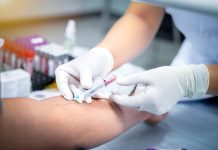Richard Bergström, Director General of the European Federation of Pharmaceutical Industries and Associations (EFPIA), highlights the importance of collaborative efforts to tackle antimicrobial resistance.
Antimicrobial resistance (AMR) represents one of the most significant threats to global public health and also one against which the pharmaceutical industry is committed to fighting. In order to address this effectively, though, healthcare stakeholders need to alter former approaches to the issue and embrace new solutions.
The World Health Organization already expressed serious concerns about the rise of AMR in 2014. At that time, it warned that without urgent, coordinated action, the world was hurtling towards a post-antibiotic era, in which common infections and minor injuries could once again kill. The European Commission has also suggested that if the current trend is not altered, 300 million people worldwide are expected to die prematurely because of drug resistance over the next 35 years.
The industry’s determination to rise to the challenge of AMR has therefore been outlined comprehensively in the Declaration by the Pharmaceutical, Biotechnology and Diagnostics Industries on Combating Antimicrobial Resistance, which was launched on 21 January 2016, at the World Economic Forum in Davos, Switzerland. The agreement was signed by 85 companies and 9 industry associations, representing the global pharmaceutical, diagnostics and biotechnology industries in 18 different countries.
The value given to antibiotics and diagnostics rarely reflects the investment required to develop them. There is an urgent need for investment via coordinated global routes, targeting the development of diagnostics, antibiotics, vaccines, and alternative technologies. Our declaration, therefore calls on governments to work with industry with a view to creating new and alternative market structures that provide more dependable and sustainable market models for antibiotics, and to commit the necessary funds to implement them.
By creating investment mechanisms in the antibiotics research and development sector, these ultimately will provide appropriate incentives – along with safeguards to support antibiotic conservation – for companies to do this. Increased focus on research and development (R&D) will enable them to overcome the formidable technical and scientific challenges of antibiotic discovery and development.
These include mechanisms to ensure that, where appropriate, the pricing of antibiotics can more adequately reflect the benefits they bring. In line with the European pharmaceutical industry’s drive towards creating outcomes-driven health systems, we believe that health systems should only pay for success.
It is also essential to develop novel payment models that reduce the link between the profitability of an antibiotic and the volume sold, thereby decreasing the need for promotional activity by companies.
Solutions to the AMR conundrum are unlikely to be realised without the adoption of a “one health approach”. This means harnessing the collaborative effort of multiple disciplines at local, national and global level, including the pharmaceutical and diagnostics industries, health technology assessment bodies, regulators, and payers.
There is also an extensive network of European collaborative projects within the framework of the Innovative Medicines Initiative (IMI), the world’s largest public- private partnership in the life sciences sector, which is funded jointly by EFPIA and the European Union. These projects, which address the challenges of antibiotic resistance, form the New Drugs for Bad Bugs (ND4BB) programme and focus on the following key obstacles to the discovery and development of new agents, designed to prevent and treat resistant bacterial infections.
There are in fact 7 projects launched within ND4BB that cover all the key areas of antibacterial R&D: COMBACTE; TRANSLOCATION; ENABLE; DRIVE-AB; COMBACTE-CARE; COMBACTE-MAGNET; and iABC. More information on these projects is available here: http://www.imi.europa.eu/content/ongoing-projects
Finally, industry understands that creating high-quality antibiotics is simply not enough if we cannot improve access and availability to all. We support mechanisms that will ensure affordable access to new and existing antibiotics to the patients who need them, in all parts of the world and at all levels of income. Already in place are a series of international programmes that have to date enjoyed considerable success in improving global access to drugs in HIV, TB, and malaria. What we need going forward is a comparable collaborative effort to address issues of access to antibiotics.
About the Author
Richard Bergström was appointed Director General of the European Federation of Pharmaceutical Industries and Associations (EFPIA) in April 2011. Over the past 20 years, he has worked for Roche, Novartis, and with the Swedish pharmaceutical industry association (LIF). A pharmacist by training, he received his MScPharm degree from the University of Uppsala, Sweden in 1988. Since 2006, he has been an advisor to the World Health Organization on Good Governance in Medicine.
Richard Bergström
Director General
European Federation of Pharmaceutical Industries and Associations (EFPIA)
info@efpia.eu











